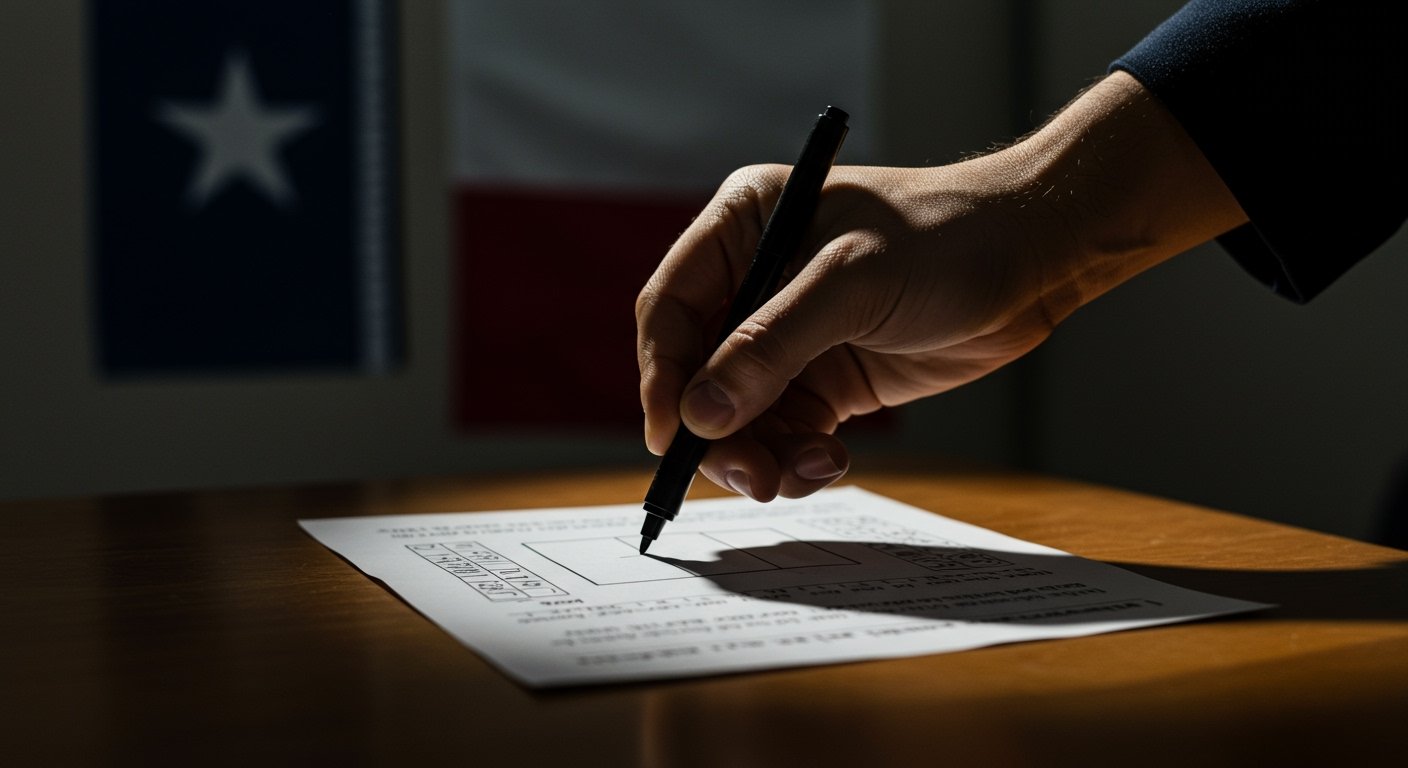A substantial ballot awaits Texas voters this November, featuring 17 proposed amendments to the state constitution. The full list of measures set to appear on the November 4, 2025 ballot was officially announced by Texas Secretary of State Jane Nelson on Wednesday, June 26, 2025.
The order in which the propositions will appear was determined by a random drawing, a standard procedure for ballot measures in the state. Each of the 17 proposed amendments successfully passed both the Texas House of Representatives and the Texas Senate, each receiving the required two-thirds majority vote from both legislative chambers.
The diverse set of propositions covers a wide spectrum of policy areas critical to the state’s future, including significant measures related to property taxes, education funding, criminal justice, and individual rights.
Shaping the State’s Fiscal Landscape
Several amendments on the ballot address key financial and taxation issues that could impact Texans’ wallets and state revenue. Among these is Proposition 2, which proposes banning state-level capital gains taxes, a move proponents argue would encourage investment within the state.
Property tax relief and adjustments feature prominently. Proposition 5 seeks to exempt animal feed from property taxes, potentially offering relief to agricultural producers. Proposition 11 permits a temporary property tax exemption on homestead improvements made after a disaster, specifically after a fire, providing a measure of assistance to homeowners rebuilding.
Furthermore, voters will consider increasing the property tax exemption specifically for elderly and disabled homeowners, a measure aimed at reducing the tax burden on vulnerable populations. A significant statewide change is also proposed: raising the school district homestead exemption from its current level of $100,000 to $140,000, which would reduce the taxable value of primary residences for school property taxes across Texas.
Beyond property taxes, Proposition 6 proposes prohibiting new occupation taxes on securities transactions, signaling a stance against potential new forms of taxation on financial activities. Voters will also decide on Proposition 8, which seeks to ban state-level estate, inheritance, and gift taxes, often referred to colloquially as the “death taxes,” ensuring these specific taxes cannot be levied by the state.
Investing in Infrastructure and Healthcare
Key investments in state infrastructure and public health are also subject to voter approval. Proposition 1 proposes creating the Permanent Technical Institution Infrastructure Fund, aimed at providing dedicated funding for the state’s technical and vocational institutions, crucial for workforce development.
Addressing the state’s long-term water needs, Proposition 4 proposes dedicating state sales tax revenue to the Texas Water Fund. This measure aims to provide a stable and substantial funding source for water infrastructure projects and conservation efforts statewide.
In healthcare, voters will consider authorizing a significant investment. A proposition establishes the Dementia Prevention and Research Institute of Texas and allocates a substantial $3 billion towards its creation and operation, highlighting a commitment to addressing neurological health challenges.
Public Safety and Judicial Oversight
The ballot includes measures concerning public safety and the state’s judicial system. Proposition 3 proposes allowing denial of bail for certain felony offenses, a measure related to ongoing debates about pretrial release and public safety concerns for specific categories of crimes.
Another amendment seeks to expand the authority of the State Commission on Judicial Conduct. This body oversees the ethical behavior and conduct of judges in Texas, and the proposed expansion could grant it greater power in its disciplinary or oversight functions.
Defining Rights and Citizenship
Two propositions touch upon fundamental rights and the definition of a voter. One amendment specifically affirms parents as primary decision-makers for their children’s education and upbringing, a measure underscoring parental rights in the educational and developmental spheres.
The ballot also includes a proposition clarifying a fundamental requirement for voting in Texas, specifying that a voter must be a U.S. citizen. While U.S. citizenship is already a requirement for voting in federal and state elections, this amendment would explicitly enshrine it within the Texas Constitution itself.
Legislative Process and Ballot Order
The inclusion of these 17 propositions on the November ballot is a result of the legislative process, where each measure garnered significant bipartisan support, evidenced by the two-thirds majority votes in both the House and Senate. Secretary Nelson’s announcement on June 26 confirmed their placement, with the random drawing determining the final order presented to voters.
Given the breadth and depth of the issues covered by these 17 proposed amendments, voter education and engagement will be crucial in the lead-up to the November 4 election. The decisions made will have lasting impacts on the state’s finances, infrastructure, education, legal system, and individual rights.






